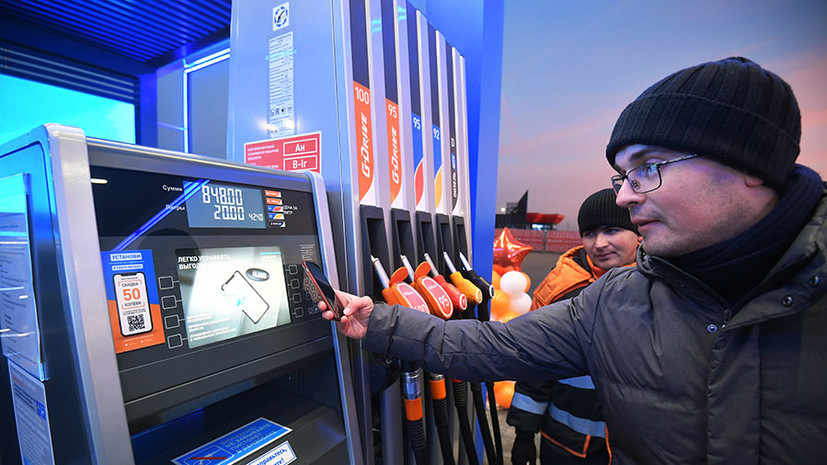The record collapse in world oil prices will not have a major impact on gasoline prices in Russia. On Wednesday, March 11, said Minister of Energy Alexander Novak. According to him, the growth in the cost of automotive fuel will remain within inflation and will not depend on fluctuations in commodity prices.
“Today we have a mechanism that was developed by the government that helps keep prices at the current level, regardless of whether oil prices go up or down. Our prices (for gasoline. - RT ) will be in forecast parameters at the level not higher than inflation, ”Novak quotes TASS.
A similar point of view is shared by the Russian Ministry of Finance. As previously noted by the deputy head of the department, Alexei Sazanov, against the background of an unstable situation in the global oil market, gas prices in the country will not change.
Recall, on March 9, at international trading, oil prices fell by more than a third. The collapse of quotations became the largest since 1991.
The reason for the shocking market situation was the unexpected collapse of the OPEC + alliance. On March 6, participants, including Russia, were unable to agree on an additional reduction in oil production and decided to completely abandon all previously undertaken obligations.
As Ilya Grigoryev, debt market analyst at Ivolga Capital, told RT, traditionally, a drop in oil prices leads to lower profits for energy companies. In this case, to cover the costs of production of raw materials, enterprises have to raise prices for petroleum products for end consumers.
However, to date, RT experts surveyed do not expect such a development. According to experts, a possible increase in gas and diesel prices will be restrained by a special compensating mechanism.
Recall that after a sharp rise in the price of fuel in 2018, the government agreed with oil companies to freeze wholesale prices. At the same time, it was unprofitable for oil companies to supply fuel to the Russian market at a fixed cost. Export prices significantly exceeded domestic prices, so it was more profitable for businesses to sell oil products only abroad. Starting January 1, 2019, the state will compensate companies for lost revenues from fuel supplies to the domestic market.
According to the Federal State Statistics Service, after the introduction of the compensatory mechanism, the growth in fuel prices in Russia slowed down fivefold - from 9.4% in 2018 to 1.9% in 2019. Since January 1, 2020, oil companies will be reimbursed for 68% of lost revenues from the sale of gasoline and 60% from diesel fuel. At the same time, against the background of a collapse in oil prices, authorities can increase the amount of compensation to maintain stable consumer prices. This point of view is shared by financial analyst at BCS Premier Sergey Deineka.
“The state will continue the actual state regulation of fuel prices on a contractual basis with oil companies. That is, to keep prices under control, we can see another round of increasing financial support for oil companies from the authorities, ”said Deineka in a conversation with RT.
Moreover, the final cost of fuel in Russia no longer depends on changes in the price of raw materials, but on the level of the tax burden on the business and the additional costs of producers, the expert notes.
“Changes in oil prices on the market have a very indirect effect on the cost of oil products. The share of raw materials in the fuel cost structure in Russia is less than 10%. The largest weight, about 70%, are paid by state excise taxes, VAT, and mineral extraction tax. In addition, the cost of logistics, processing and storage of raw materials is an important component of the cost, ”said Sergey Deineka.
According to Finam analyst Alexei Korenev, an increase in fuel prices often leads to higher consumer prices for related products and acceleration of inflation. Thus, the state is interested in maintaining a stable fuel cost.
“If the authorities additionally support oil companies, the growth in fuel prices in 2020 will be able to be kept within the framework of official inflation - within 3.5-4%,” the analyst added.
Note, according to the latest data from Rosstat, from January 2020 the average cost of gasoline in Russia increased by 24 kopecks and by the beginning of March amounted to 44.92 rubles per liter. At the same time, diesel fuel went up by 42 kopecks - up to 48.14 rubles per liter.

